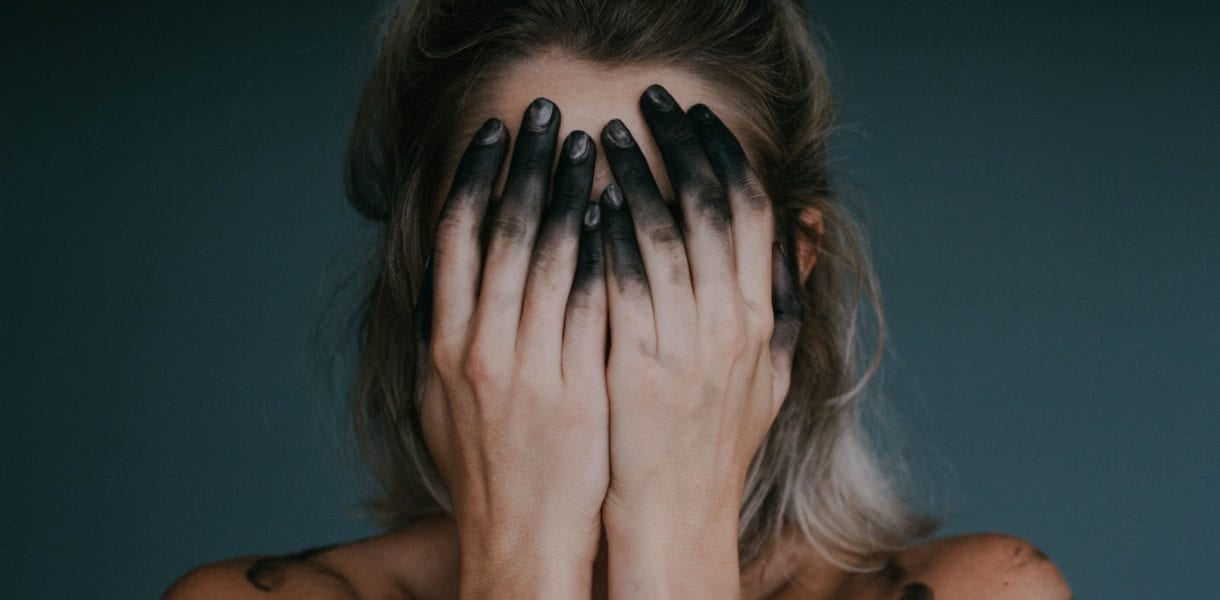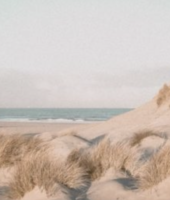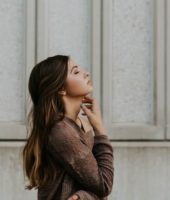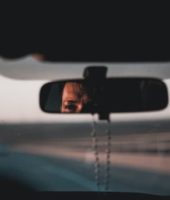On your left arm is a scar
where glass from a broken windshield
pierced skin, muscle, aponeurosis—
a thin, white sheet of fiber, impossible to know
is there without a wound.
When he was institutionalized
you told a story to explain his absence:
a flat tire, you said.
Seeing your father unmedicated
is like meeting him again, is like being
a child. He gives you a purple flower,
drives you around the city, orders pizza
with oysters on top, doesn’t stop talking—
your taciturn father, his unhappy history
suddenly wiped from view.
He took his antipsychotic meds
for 23 years, sometimes buying food
for you and your brothers rather than
filling a prescription. The year you apply
for medical school your father loses
his hold on reality, it slips away
into the garbage can, is flushed
down the toilet. You start to receive long letters,
angry phone calls. He’s started to gather sharp
objects, begins to see the Devil, your brother
who lives in Alaska tells you all this after
he’s flown to this part of the country, after
he’s stepped inside your father’s house
with your other brother. You wait outside,
wait for word of what is to be done.
Outside the ER, your sister pulls her hood
over her head. She’s in hiding, and you are
too, from your father, who has been checked
in by your two brothers, who hold him down
while a sedating syringe is slipped quickly
beneath his skin.
You have never been inside
a psychiatric treatment center,
not since childhood and this is different
from the sprawling state hospital, its green
lawns. An office building of stone and brick
more like a college dormitory. In their rooms
and pajamas, feet tucked into orange
hospital-issued slippers, or gathered in the common
areas to read or talk, patients speak gently to you
about your father, reassuringly, as though
the fact of your presence is some signal,
a magic spell making you good, even if you
do not feel good about anything that is happening.
Only goodness to stave off the feeling
you get in your stomach when your father
tells you they injected haloperidol into his thigh
that first night, only goodness as you push him
in a wheelchair outside into the courtyard
where it is afternoon and the light is a gray-gold
glow. After the medication wears off
you think he will snap at the psychiatrist,
but he is silent. You are sure he is seething,
but he remains acquiescent. You think, keep it up,
because getting out is the goal—you hope
this is not forever, the way no one speaks
and how cold the air feels, even in sunlight.
Your first year of medical school
you awaken from sleep, go to the kitchen for water,
face the window’s blank, infinite stare.
No one is out there, except for the coyotes
you saw at the far end of the field, hunting
mice on the open ground, their slantwise walk,
their thin hunger.
Author: Kasey Johnson
Email: [email protected]
Author Bio: Kasey Elizabeth Johnson is a third-year medical student. She is interested in the intersection of race, class, gender, mental health, and addiction in literature and in healthcare education and practice. Her writing has been published in Bodega Magazine, Bone Bouquet, Corium Magazine, Paper Nautilus, Prick of the Spindle, Saranac Review, among others. She holds an MA from the University of New Mexico and a BA from Reed College.






